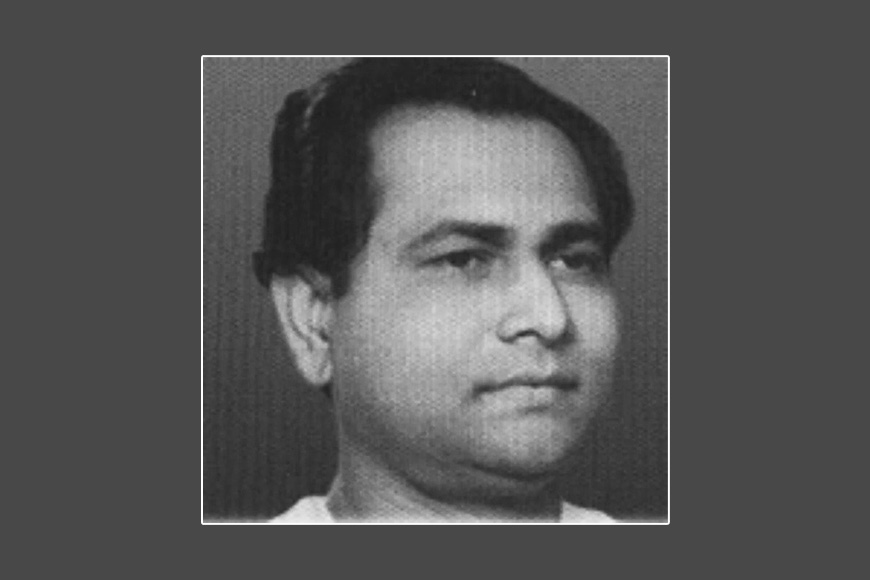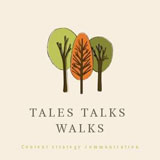King of Bengali Folk, Nirmalendu Chowdhury

GB celebrates the man and his music and brings the nostalgia of lost beats. Though many Bengali bands have made folk songs their forte in recent times, no one can forget the contribution of Nirmalendu Chowdhury and how for the first time he made Bangla Folk popular across the globe. In this two part series we bring back that nostalgia.
The year was 1955. The 5th World Festival of Youth and Students (WFYS) was held in Warsaw, capital city of the then Polish People's Republic, from 31 July to 15 August. A young folk singer from Bengal was part of the Indian contingent that participated at the event. It was his first trip abroad and he was representing India in the International Folk Music Competition. Naturally, he was a little nervous. On the scheduled day of the competition, he waited in the wings for his turn with trepidation. When his name was announced, he took the stage and then some miracle happened and he was a transformed entity, like a dervish, a man possessed. His full-throated melodious rendition electrified the audience. They sat transfixed as he sang, “Musolmaney go bolay Allah/ Hindu bolay Hari… He aced the Folk Music Competition that year and was honoured with a gold medal. The Indian team was jubilant. Renowned stage and film actor Balraj Sahni, who was also a member of the squad, spontaneously declared a night-long party for the team at the Warsaw hotel where they were staying, to celebrate the event. The next day, as the singer boarded a public bus and went on a tour of the city, he was literally mobbed by ordinary people and the organizers requested him to sing the song he had rendered the previous evening. So, he stood in the front-facing edge of the door of a bus and obliged.
Nirmalendu got an opportunity to learn folk songs from two noted exponents of the genre, Abdul Majid and Abdur Rahim. This was a unique experience for him and opened the doors to a vast new world of music. This was a phase when, like a self-possessed man, he moved around following rural fakirs, Sai kirtaniyas and baul singers in an effort to learn from them.
"Nirmal is the pride of Bengal. He has been felicitated with a gold medal in an international competition. Take my car and receive him at the airport!" instructed Uttam Kumar, the reigning star of Bengali film industry, to his younger sibling, Tarun Kumar. Nirmalendu Chowdhury was given a hero’s welcome when he returned from Poland after mesmerizing the West with his mellifluous rendition of Bengali folk songs.
American folk singer Sam Duffie Hinton had once said, folk music is not so much a body of work as it is a process, an attitude and a way of life; its distinguishing features lie not within the songs themselves, but in the relations of those songs to folk culture. Folk music is the map of singing. Folk songs express the dreams and prayers and hopes of the working people. Nirmalendu Chowdhury was truly a wanderer in search of folk music. He travelled extensively across Bengal, Assam and Tripura, befriending rural minstrels and learning from them the intricacies of folk music. In fact, he was instrumental in revitalization and propagation of various forms of folk songs of these regions and these include Bhatiali, Bhaoaiya, Dhamail, Sari, Tusu, Baul, Lalon Geeti and so on and so forth.
Also read : Baul who was called India’s Bob Dylan!
Nirmalendu was exposed to varied kinds of music from his infancy. Hailing from Bahely, an idyllic village in Jamalgunj subdivision of Sunamganj in Sylhet, he watched boatmen, farmers, masons and other working-class people singing gayly while toiling for hours. His experience is beautifully expressed by poet/singer Rod McKuen in his song, ‘Without a worry in the world.’ He writes, “All merry men are minstrels then/Who keep their troubles locked inside/ And don't inflict them on the world/ Isn't there something to be said/For leaving your troubles home in bed/ And never taking them to the road….”
Chowdhury was impelled by the melody and rhythm of folk songs and the gripping music stirred his inner chords. Although from the 1950s, he travelled extensively and went abroad several times with his vast array of folk music, he could never forget his tiny village in Sylhet, his ancestral home on the banks of a meandering river. Both his parents, Nalini Nath Chowdhury and Snehalata Chowdhury were music lovers and encouraged Nirmalendu to sing. His mother Snehalata Devi was a natural singer with a mellifluous voice and she would recite and sing from Mangal-kavya and Padma Puran. Mangal-KÄvya is a group of Bengali religious texts, composed more or less between 13th and 18th centuries, notably consisting of narratives of indigenous deities. They are often recited at the festivals of the deities mentioned in the kavya. The popular ones are sung to entertain village audiences as bhajans. Little Nirmalendu would sit for hours transfixed, listening to her rendition.
Later, Nirmalendu’s family shifted from Bahely to Lamabazar, also in Sylhet. Nirmalendu was admitted to Rasamay Memorial School from where he completed his matriculation. His formal training in music commenced here under Pranesh Das and Sudhir Chakraborty. When the family again relocated to Mymansing from Sylhet, Nirmalendu got an opportunity to learn folk songs from two noted exponents of the genre, Abdul Majid and Abdur Rahim. This was a unique experience for him and opened the doors to a vast new world of music. This was a phase when, like a self-possessed man, he moved around following rural fakirs, Sai kirtaniyas and baul singers in an effort to learn from them.
Nirmalendu Chowdhury was truly a wanderer in search of folk music. He travelled extensively across Bengal, Assam and Tripura, befriending rural minstrels and learning from them the intricacies of folk music. In fact, he was instrumental in revitalization and propagation of various forms of folk songs of these regions and these include Bhatiali, Bhaoaiya, Dhamail, Sari, Tusu, Baul, Lalon Geeti and so on and so forth.
Much later, he learned Rabindrasangeet from Ashokbijay Raha at Santiniketan. When he moved to Calcutta, he took music lessons from Suresh Chakraborty. After school, he moved to Sylhet town to study at the prestigious Murari Chand College (M.C. College) for graduation. Established in 1892, this was the first college in the entire Sylhet Division. During his college days, Nirmalendu got involved in political activities. He was deeply influenced by the tenets of the Communist Party and became a member of the party at the age of 20.
At this phase, the cultural wing of the party was working to sensitize the masses against British oppression and Nirmalendu engaged himself fully in that pursuit. He toured extensively in the rural belts of undivided Bengal and this provided him an opportunity to fraternize with diverse folk songs and folk culture of Bengal, Sylhet in particular. Party officials noticed his commitment, his zeal and efficiency as an organizer and decided to utilize his expertise. These qualities also stood him in good stead in future.
(To be continued)










